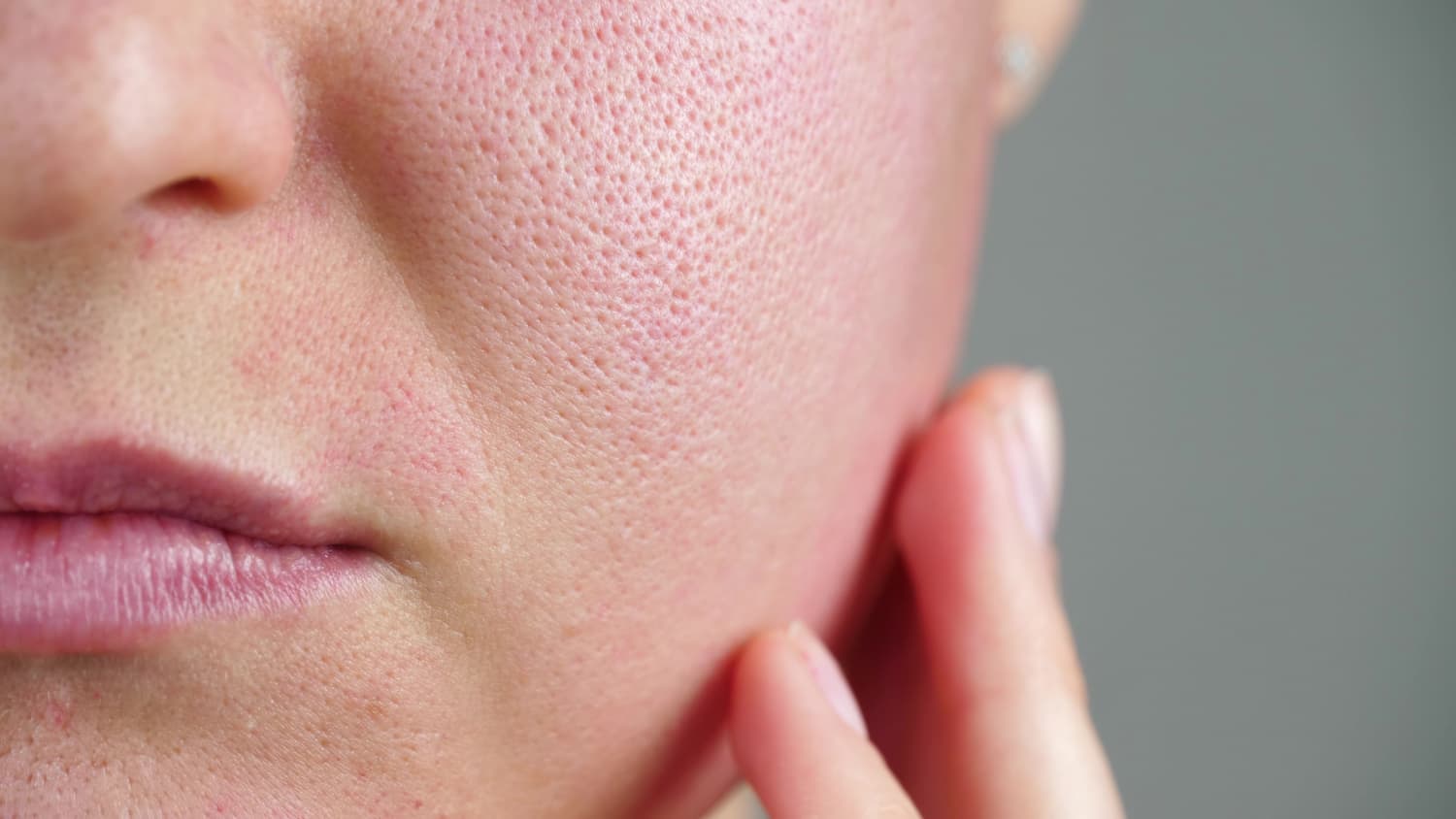Rosacea is a skin disease that is commonly identified by redness on the face, neck, and occasionally the ears and back. Rosacea begins between the ages of 30 and 60 and is more common in fair-skinned people and women in menopause. The redness that signifies rosacea is typically caused by broken blood vessels, although pimples may also pop up. Affiliated Dermatology® has been helping people with rosacea manage their symptoms in the greater Phoenix area for years. Keep reading to learn about rosacea, what it is, and how you can get help managing your rosacea symptoms.
Common Symptoms of Rosacea
Redness isn’t the only sign of rosacea. Tingling burning skin could also be an indicator.
So are enlarged pores, red bumps that can resemble pimples, and patches of dry, rough skin.
Men’s noses may swell and develop a bulbous shape. In some cases, bumps can appear on your eyelids, and you may have some problems with your vision.
Researchers aren’t sure what causes rosacea, but it seems to be genetic in some families. Sun damage may be another contributing factor—too much sun can expand the blood vessels in your face and make them more visible under the surface of your skin.
Bacteria—specifically H. pylori—can increase the amount of gastrin in your system, which can lead to that telltale flush on your face.
Fortunately, there is help for rosacea. Our team at Affiliated Dermatology® is ready to help come up with a treatment plan to help you manage your rosacea symptoms.
What to Avoid if You Have Rosacea
Rosacea is triggered by heat, dry weather, and low humidity—exactly the climate in Phoenix and the surrounding area is famous for. If your skin is prone to rosacea, the professionals at Affiliated Dermatology® offer these tips for avoiding rosacea flare-ups and managing the symptoms of the disease.
- Avoiding Emotional stress
- Limiting or mitigating Exposure to the sun
- Avoiding spicy foods and hot beverages as these may cause flare-ups.
- Limiting alcohol consumption, which might also cause a flare-up
It may help if you keep a journal of your rosacea flare-ups. Note when the signs appear, where you were, and what you have been doing, eating, and drinking. When speaking with a medical professional at Affiliated Dermatology® this can help with not only identifying unique triggers but will more adequately allow us to come up with a treatment plan catered to your specific skin care needs.
Best Practices For Rosacea
The best way to manage your rosacea is to treat your skin kindly. Practice a daily skincare routine using non-abrasive cleansers and soft white washcloths. Be sure to use lukewarm water, neither too hot nor too cold. Blot your face dry; rubbing can irritate your skin and lead to a flare-up.
When you’re out in the sun, wear clothing with sunscreen built in, and use a topical sunscreen with an SPF 15 or higher, and eliminate both UVB and UVA rays.
How to Prevent Flare-ups
Preventing flare-ups is key to managing your rosacea. There are a few steps you can take to reduce your risk of experiencing a flare-up:
Maintain a healthy lifestyle: Exercise and eat right to maintain a healthy weight and get plenty of sleep.
Take medications as prescribed: If your doctor has prescribed any medications, make sure you take them as directed.
Wear sunscreen: Sun exposure can trigger rosacea flare-ups, so wear a broad-spectrum sunscreen with an SPF of 30 or higher to protect your skin from the sun’s damaging rays.
Regardless of the measure you take, it’s always best to seek help from a medical professional.
Treatment for Rosacea in Phoenix
People who have rosacea are often self-conscious about it as it shows up on the face, but the professionals at Affiliated Dermatology® can diagnose your rosacea and prescribe medications and tips for managing the disease. In severe cases, our dermatologists may prescribe vascular laser or intense pulsed light therapy to treat the symptoms.
If you’re in the Phoenix area and ready to treat your rosacea,contact us at Affiliated Dermatology® to make an appointment with one of our dermatologists today. Or you can simply text (480) 405-3877 for an appointment.
Image Credit: Julia Diak / Shutterstock






